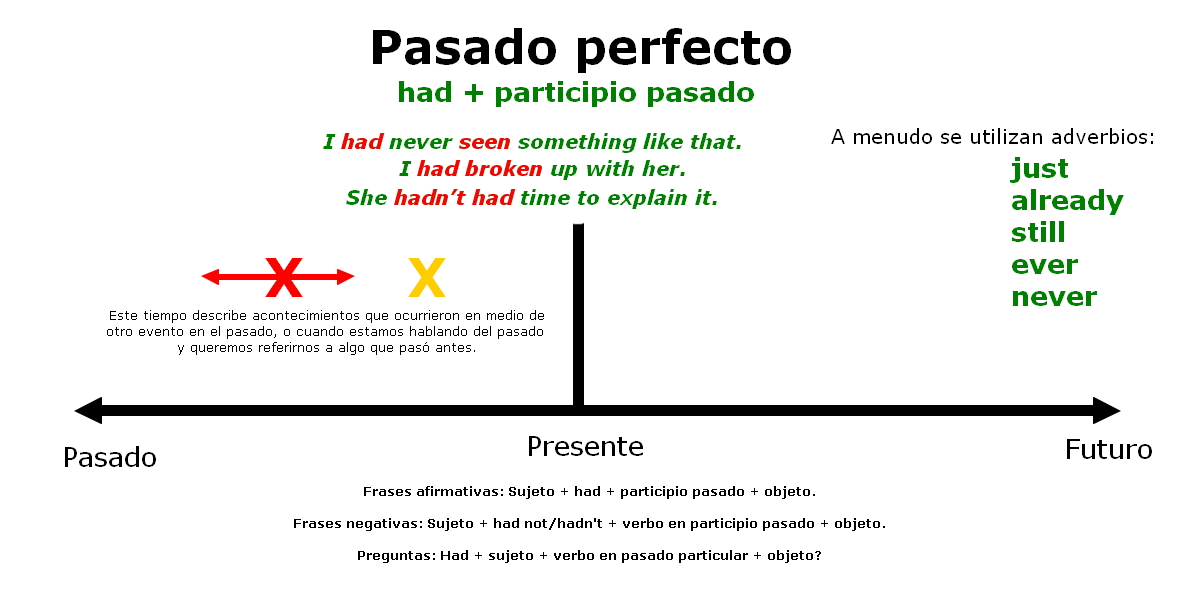El pasado perfecto (también llamado pluscuamperfecto) se utiliza para expresar acontecimientos que tuvieron lugar antes de un determinado momento del pasado. Se forma con el verbo auxiliar "had" y el participio pasado.
Por ejemplo:
write → had written
sleep → had slept
Normalmente no se encuentra solo en una frase, sino junto con otro tiempo pasado que expresa un hecho ocurrido entre otro hecho anterior y el presente:
David suddenly realised that he had left his wallet on the train.
En el ejemplo anterior, tenemos dos tiempos pasados para distinguir qué suceso ocurrió antes. David sólo pudo recordar que se había dejado la cartera en el tren después de que ocurriera. En el caso de esta frase, se puede deducir lógicamente.
Si la frase es menos clara, resulta útil la presencia de conjunciones como antes, hasta, después, que indican la secuencia de los acontecimientos.
El siguiente ejemplo muestra cómo el uso del pasado cambia el significado de la frase:
Jane cooked breakfast when we got up.
Si la frase estuviera en pasado ("had cooked"), significaría que Jane cocinó antes de que se levantaran. El uso del pretérito simple significa que Jane cocinó después de que se levantaran.
En un artículo especial hemos preparado muchos ejemplos de pasado perfecto.
10 Oraciones afirmativas en Pasado Perfecto
- I found out that he had used washable paint.
- I did not have a lot of money because I had lost my job.
- I had never been to London until today.
- After she had done her homework, she played football.
- I didn’t say a word until she had finished her story.
- He had left when I went to the party.
- The train had left before I arrived at the station.
- I had already finished my homework when you called.
- I had seen this girl once, but I liked her voice.
- The meeting had already ended when I reached the office.
10 Oraciones negativas en Pasado Perfecto
- I had not ever eaten in this restaurant until this day.
- I hadn’t ever been to Paris before moving there.
- She hadn’t had time to explain it before seeing him.
- He had not lived in London.
- I had not cleaned my flat before they came.
- I had not been to the movies for many years when I saw that movie.
- We had not been here before, so we did not know where to go for lunch.
- She had not seen her husband for three years when he returned home.
- We hadn’t ever traveled to Egypt.
- They hadn’t practiced the trick before they performed it.
10 Oraciones en Pasado Perfecto interrogativas
- Did the students go home after they had visited the library?
- When had she eaten?
- Where had she disappeared to?
- Had you ever been to London before you moved there?
- Had she done her homework?
- Had they understood what happened?
- What had you done before she came in?
- Who had you seen after you saw the footage?
- Had Jim taken the spot before we arrived?
- What had they done to the room after we left?

